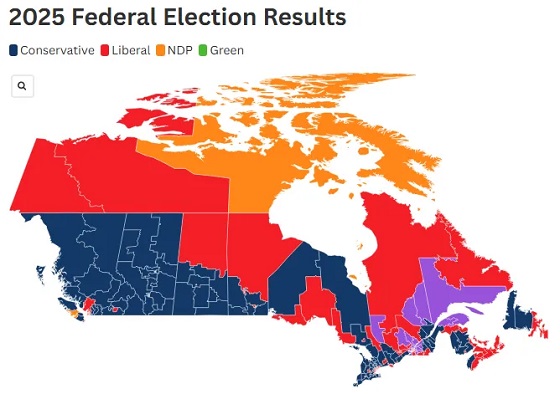Opinion
The dangerous slippery slope of activist-driven climate lawsuits

From the Frontier Centre for Public Policy
Canadians should be concerned climate activists are pushing climate change litigation – or climate change tort cases – at the U.S. state and local levels.
We should all be prepared if this bizarre new legal trend introduced by climate change alarmists comes to Canada.
Canadians have noticed most extreme climate change-inspired ideas – like banning natural gas furnaces – originate from liberal parts of the United States and eventually find their way northwards to our provincial legislatures or city halls.
Lawyers – supported by climate change alarmist organizations – are inventing new legal theories to allow state governments to sue energy companies for alleged contributions to global climate change. Lawyers even attempt to link oil companies to specific extreme weather events.
American observers became alarmed when the Hawaii Supreme Court upheld a lower court ruling in that state allowing oil companies to be sued in state courts for their alleged contribution to climate change. U.S. Legal critics were concerned how this climate change litigation could turn state courts into regulators of global climate change. They argued this was improper given that inter-state and foreign energy policy and commerce is federally regulated.
Canadian judges will have to deal with similar federalism/jurisdictional issues if these nuisance lawsuits come to our courts. Green activists on both sides of the border are determined to handicap the energy sector through the courts and lower levels of government.
Lawyers are basing their legal theories on unjustified certitude regarding climate change. The United Nations Intergovernmental Panel on Climate Change (IPCC) – the most prominent so-called “authority” on climate science – actually presents a nuanced and cautious view of this topic. Politicians and journalists often blame specific weather patterns or events on climate change with little evidence.
Canadian author Joanne Marcotte, in her book Inconvenient Doubts: Climate Change Apocalypse: Really? reminds us that so-called experts miss three key points about IPCC reports: 1) They include varying degrees of confidence and probabilities, rarely mentioned by the media; 2) Some statements refer to specific regions but are often generalized globally; and 3) An extreme weather event becomes a disaster only if a region cannot respond effectively.
Lawyers pushing these anti-oil lawsuits are really saying courts can determine with certitude these oil companies are causing climate change or they can be blamed for specific weather events.
Activists are pushing their anti-energy agenda in the courts because they are losing the war of ideas in democratically elected legislatures. Canadian voters are rejecting these unnecessary and costly green policies because they are being economically crushed by spurious and environmentally pointless carbon taxes that unnecessarily inflate all basics including food and gasoline prices . Activists realize this and want unelected and unaware judges to become arbiters on an incredibly complex and nuanced issue like global climate change.
Drivers should be wary because once courts allow provinces to attack oil companies they may come after them. Activists know transportation is the second biggest contributor to carbon emissions after the energy sector.
Canadian litigants raised climate change at the Supreme Court of Canada when several provincial premiers challenged the constitutionality of the carbon tax – a clever way to bypass democratic legislatures and impose their anti-energy policies on courts and lower levels of government.
Canadian consumers should be able to choose energy sources best for them. We should not allow activists to use courts – as they have in the United States – to impoverish everybody through by imposing extreme and unscientific anti-energy climate policies through the backdoor.
Joseph Quesnel is a Senior Research Fellow with the Frontier Centre for Public Policy.
2025 Federal Election
Post election…the chips fell where they fell

From William’s Substack
 William Lacey
William Lacey
I put a lot of personal energy into this election, trying to understand why it was that Canadians so wholeheartedly endorsed Mark Carney as their new leader, despite the fact that it was the same party who caused irreparable economic harm to the economy, and he has a similar philosophical outlook to the core outlook of the party. I truly believe that we have moved to a phase in our electoral process where, until something breaks, left leaning ideology will trump the day (pun intended).
Coming out of this election I have three questions.
1. What of Pierre Poilievre? The question for Conservatives is whether the wolves feed on the carcass of Poilievre (in my opinion the worst enemy of a Conservative is a Conservative) and initiate the hunt for a new leader (if they do, I believe the future should be led by a woman – Melissa Lantsman or possibly Caroline Mulroney), or does Poilievre move to Alberta and run for a “safe” seat to get back into the House of Commons, change his tone, and show people he too can be Prime Ministerial? His concession speech gives clues to this.
2. What of Mark Carney? Maybe (hopefully) Carney will see the light and try to bring the nation together, as there is an obvious east-west split in the country in terms of politics. Time will tell, and minority governments need to be cautious. Will we have a Supply and Confidence 2.0 or will we see olive branches extended?
3. What of the House of Commons? As I have mentioned previously, there has been discussion that the House of Commons may not sit until after the summer break, meaning that the House of Commons really will not have conducted any business in almost a year by the time it reconveens. If indeed “we are in the worst crisis of our lives” as Prime Minister Carney campaigned on, then should we not have the House of Commons sit through the summer? After all, the summer break usually is for politicians to go back to their ridings and connect with their constituents, but if an election campaign doesn’t constitute connecting, what does?
Regardless, as the election is behind us, we now need to see what comes. I will try to be hopeful, but remain cautious. May Canada have better days ahead.
Thanks for reading William’s Substack!
Subscribe for free to receive new posts and support my work.
Banks
TD Bank Account Closures Expose Chinese Hybrid Warfare Threat

From the Frontier Centre for Public Policy
Scott McGregor warns that Chinese hybrid warfare is no longer hypothetical—it’s unfolding in Canada now. TD Bank’s closure of CCP-linked accounts highlights the rising infiltration of financial interests. From cyberattacks to guanxi-driven influence, Canada’s institutions face a systemic threat. As banks sound the alarm, Ottawa dithers. McGregor calls for urgent, whole-of-society action before foreign interference further erodes our sovereignty.
Chinese hybrid warfare isn’t coming. It’s here. And Canada’s response has been dangerously complacent
The recent revelation by The Globe and Mail that TD Bank has closed accounts linked to pro-China groups—including those associated with former Liberal MP Han Dong—should not be dismissed as routine risk management. Rather, it is a visible sign of a much deeper and more insidious campaign: a hybrid war being waged by the Chinese Communist Party (CCP) across Canada’s political, economic and digital spheres.
TD Bank’s move—reportedly driven by “reputational risk” and concerns over foreign interference—marks a rare, public signal from the private sector. Politically exposed persons (PEPs), a term used in banking and intelligence circles to denote individuals vulnerable to corruption or manipulation, were reportedly among those flagged. When a leading Canadian bank takes action while the government remains hesitant, it suggests the threat is no longer theoretical. It is here.
Hybrid warfare refers to the use of non-military tools—such as cyberattacks, financial manipulation, political influence and disinformation—to erode a nation’s sovereignty and resilience from within. In The Mosaic Effect: How the Chinese Communist Party Started a Hybrid War in America’s Backyard, co-authored with Ina Mitchell, we detailed how the CCP has developed a complex and opaque architecture of influence within Canadian institutions. What we’re seeing now is the slow unravelling of that system, one bank record at a time.
Financial manipulation is a key component of this strategy. CCP-linked actors often use opaque payment systems—such as WeChat Pay, UnionPay or cryptocurrency—to move money outside traditional compliance structures. These platforms facilitate the unchecked flow of funds into Canadian sectors like real estate, academia and infrastructure, many of which are tied to national security and economic competitiveness.
Layered into this is China’s corporate-social credit system. While framed as a financial scoring tool, it also functions as a mechanism of political control, compelling Chinese firms and individuals—even abroad—to align with party objectives. In this context, there is no such thing as a genuinely independent Chinese company.
Complementing these structural tools is guanxi—a Chinese system of interpersonal networks and mutual obligations. Though rooted in trust, guanxi can be repurposed to quietly influence decision-makers, bypass oversight and secure insider deals. In the wrong hands, it becomes an informal channel of foreign control.
Meanwhile, Canada continues to face escalating cyberattacks linked to the Chinese state. These operations have targeted government agencies and private firms, stealing sensitive data, compromising infrastructure and undermining public confidence. These are not isolated intrusions—they are part of a broader effort to weaken Canada’s digital, economic and democratic institutions.
The TD Bank decision should be seen as a bellwether. Financial institutions are increasingly on the front lines of this undeclared conflict. Their actions raise an urgent question: if private-sector actors recognize the risk, why hasn’t the federal government acted more decisively?
The issue of Chinese interference has made headlines in recent years, from allegations of election meddling to intimidation of diaspora communities. TD’s decision adds a new financial layer to this growing concern.
Canada cannot afford to respond with fragmented, reactive policies. What’s needed is a whole-of-society response: new legislation to address foreign interference, strengthened compliance frameworks in finance and technology, and a clear-eyed recognition that hybrid warfare is already being waged on Canadian soil.
The CCP’s strategy is long-term, multidimensional and calculated. It blends political leverage, economic subversion, transnational organized crime and cyber operations. Canada must respond with equal sophistication, coordination and resolve.
The mosaic of influence isn’t forming. It’s already here. Recognizing the full picture is no longer optional. Canadians must demand transparency, accountability and action before more of our institutions fall under foreign control.
Scott McGregor is a defence and intelligence veteran, co-author of The Mosaic Effect: How the Chinese Communist Party Started a Hybrid War in America’s Backyard, and the managing partner of Close Hold Intelligence Consulting Ltd. He is a senior security adviser to the Council on Countering Hybrid Warfare and a former intelligence adviser to the RCMP and the B.C. Attorney General. He writes for the Frontier Centre for Public Policy.
-

 Alberta15 hours ago
Alberta15 hours agoNew Alberta Election Act bans electronic vote counting machines, lowers threshold for recalls and petitions
-

 Alberta15 hours ago
Alberta15 hours agoHours after Liberal election win, Alberta Prosperity Project drumming up interest in referendum
-

 Alberta23 hours ago
Alberta23 hours agoPremier Danielle Smith responds to election of Liberal government
-

 Banks16 hours ago
Banks16 hours agoTD Bank Account Closures Expose Chinese Hybrid Warfare Threat
-

 Automotive2 days ago
Automotive2 days agoMajor automakers push congress to block California’s 2035 EV mandate
-

 COVID-192 days ago
COVID-192 days agoFormer Australian state premier accused of lying about justification for COVID lockdowns
-

 Business2 days ago
Business2 days agoNet Zero by 2050: There is no realistic path to affordable and reliable electricity
-

 Autism2 days ago
Autism2 days agoUK plans to test children with gender confusion for autism





